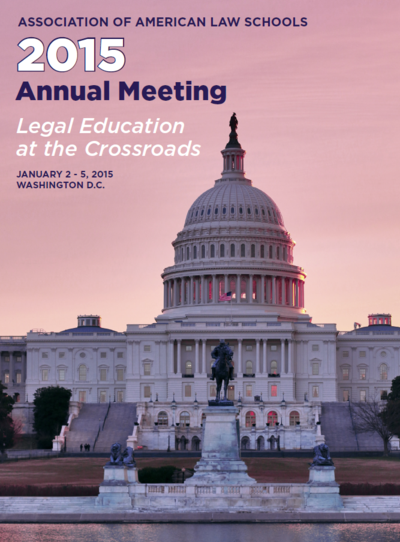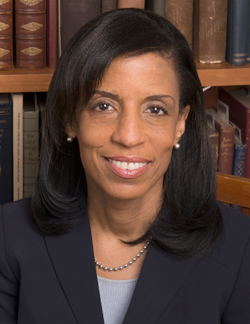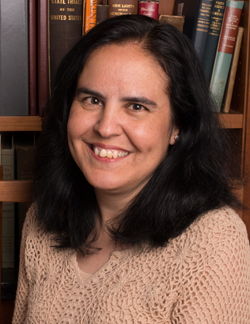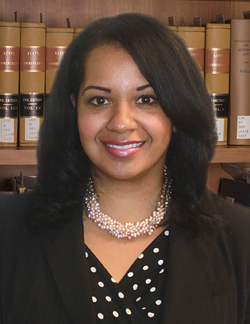
Three members of the faculty and staff of the Columbus School of Law offered presentations at the 2015 annual meeting of the Association of American Law Schools (AALS), held Jan. 2-5 at the Washington Marriott Wardman Park Hotel in Washington, D.C.
The yearly conference is among the largest in legal education, bringing together faculty, staff, and administrators from law schools around the nation for panel discussions and symposia that cover a wide range of shared issues. The panel presentations before peers and colleagues offer the opportunity to share best practices, cutting edge research, and anecdotal expertise related to legal education as a whole. This year, CUA Law was represented by:

Professor Regina Jefferson, who as a member of the AALS Section on Employee Benefits and Executive Compensation, participated on a panel titled "Retirement Policy: Incremental v. Fundamental Reform." Panel Description
There is something close to a consensus that our current retirement system - for most people, Social Security and access to a 401(k) or 403(b) plan - is not optimal, although there is disagreement about whether the system is a failure or just not as successful as it might be. Since ERISA's enactment there has been considerable legislative and regulatory adjustment to the statute, some minor, some major, but we are still stuck with a system that seems more path dependent than intelligently designed. Is it time to give up on the current system and design a replacement system that would be universal and provide an adequate and secure benefit? Or can the current system be tweaked into a system that works better for more people?

Professor Lucia Silecchia, who was part of a panel sponsored by the Section on Jewish Law, co-sponsored by the Section on Islamic Law. Silecchia's group explored "Religious Beliefs and Political Agendas: What Role Should Faith Play in the Public Square." Panel Description
The intersection of religious belief and public policy has been in the news of late. Most notably, a number of recent Supreme Court cases have focused on claims that civil laws either improperly burden or favor religion in violation of the First Amendment. However, questions also arise in the other direction. To what extent do religious traditions encourage followers to attempt to have their religious practices or beliefs codified into secular law? How do or should religious traditions use sacred texts and/or commentary thereon to develop positions on modern issues? What impact, if any, should the pluralistic nature of our society have on these debates?

Director of Admissions Shani Butts, who was a discussant for "The Individualized Approach to Law Students: From Applicant to Alumni." Panel Description
The upside to shrinking enrollments is that law schools are better able to provide an individualized approach to students throughout the law school continuum. This can include individualized outreach to applicants, academic and career advising during law school, and bar exam prep assistance and career counseling for alumni. This panel will look at ways to individualize student services and empower students to experience law school and practice in a way that is both personally and professionally fulfilling.
